 SELECTED POEMS ATAL BIHARI VAJPAYEE SELECTED POEMS ATAL BIHARI VAJPAYEE Translated by
SELECTED POEMS ATAL BIHARI VAJPAYEE SELECTED POEMS ATAL BIHARI VAJPAYEE Translated by
Arvind Shah Selected Poems Atal Bihari Vajpayee Arvind Shah (Translations) ISBN : 978-81-212-1194-9 All rights reserved. No part of this book may be reproduced in any manner without written permission Published in 2013 in India by Gyan Publishing House 23, Main Ansari Road, Daryaganj, New Delhi - 110002 Phones : 23282060, 23261060 Fax : (011) 23285914 E-mail: website: gyanbooks.com Laser Type Setting : Rajender Vashist, Delhi
Selected Poems Atal Bihari Vajpayee Arvind Shah (Translations) ISBN : 978-81-212-1194-9 All rights reserved. No part of this book may be reproduced in any manner without written permission Published in 2013 in India by Gyan Publishing House 23, Main Ansari Road, Daryaganj, New Delhi - 110002 Phones : 23282060, 23261060 Fax : (011) 23285914 E-mail: website: gyanbooks.com Laser Type Setting : Rajender Vashist, Delhi
Printed at : Chawla Offset Printers, Delhi Dedicated to my brother Late Vir Ashok Shah alias
Kaka ji, who was snatched away from us by death
before he could see life after having put in hard toil
since early days. Peace be to his soul wherever he is. Contents The Poet and Me Writing poems has come down to me from my ancestors. My father Pt. written by him was a mass recitation in all education institutions of the Riyasat.
I still remember poems written by him in different meters, forms and styles. Grandfather Pt. Shyam Lal Vajpayee though not a poet himself kept deep interest in Sanskrit and Hindi poetry. He remembered hundreds of couplets in both languages. And he would say them with relevance in day to day verbal communications. The literary atmosphere of the family also influenced all the brothers.
The eldest brother Pt. Avad Bihar Vajpayee also wrote poetry. Those days poetry recitation was on high beat cheep, humor and cracking of jokes, as is in fashion these days was not prevalent then. It was necessary that humor and entertainment kept decency. Poetry on heroism and bravery romance and love were liked. Poets were bound by style and form of a poem to maintain a focus on the subject.
The compilations were in meter and rhyme. Writing blank verse was not very prevalent then. Compilations for writing spontaneous verses earned rewards and prizes. Once poets were asked to compile three liners in a particular style and meter and father Pt. Kishen Bihari Vajpayee composed a nice verse as per the form on a romantic subject in Brij language (the author has written the verse) Elder brother compiled a poem in appreciation of grandfather Pt. Shyam Lal Vajpayee to recognize him as a learnt scholar and a talented human being, who was socially conscious and helpful and who always kept alive a devotional desire to reach to needy with a helping hand (the verse is in Brij language and the author has written the verse).
In the appropriate and encouraging atmosphere at home, I also started composing rhymes and participated in poetry recitation programmes, first as a listener and then as an emerging poet. I do not remember my first rhymes but I remember the poem, I wrote on Taj Mahal. This poem was different from the usual routine of the poems written on Taj Mahal. The poem instead of appreciating the beauty of Taj was a portray of the after effects of the exploitation of the labourers who raised the Taj Mahal. This poem was published in the high school magazine. Some friends say, had I not come into politics then I would have been a top class poet.
I do not understand the words top and toe, though it is a fact that politics was an impedance in my smooth flow of poetry writing yet I do not blame it for dispensing off and setting aside an upcoming poet. After leaving the study of law incomplete and taking up the editorship of a Lucknow based monthly magazine Rashtriya Dharm it became difficult to find time for writing poetry. Poetry writing demands not only time, but suitable atmosphere as well. When there is an urgency of sending the matter of the magazine to press, the manager of the press creates a hard pressure for having the matter as adherence to the time-line for the publication of the periodical is very essential, then taking high flights of imagination and carrying the writings into the nectar of deep depths of spirited emotions in style and form on paper was not there for the paucity of time. As an editor of weekly periodical and daily news paper, writing poetry went still farther. The sentiments that would emanate in me were carried in columns and editorials.
Later on when I took to politics, not to speak of poems, it was difficult to write small verses. All the energy got spent in delivering lectures. In 1957, when I was elected the member of the parliament for the first time, lectures became the main mode of expression and it was very seldom that I got time to write articles or poetry. The fact is that, politics and writing poetry cannot go together. The politics that necessitates delivering a lecture every day and that too in a language which attracts and influences listeners and creates an impact so there is no time, to be solitarily yourself for the concentration required for writing poetry and there to have the right atmosphere necessary for writing poetry. The little number of poems that I have written are creations of the situations and the world around.
They are the reflections of conditions and the surroundings. In sustaining honesty and sincerity of the poet in me, I had to pay a lot of price. I always try to strike a balance between the poet and the politician. Sometimes I desire to relinquish everything to read and write, and get lost in thinking, but am not able to do so. Seven decades of life of dilemma have passed by and whatever years are left they will also pass in the same way. I hope finding my poems at one place will be a pleasure for readers who love it.
I am grateful to all those who have collected my poems scattered here and there to compile them in this form. 
(Originally written in Hindi and translated) Literary it means scholar, but it, as a prefix to a name is somewhat like Mr. in English language. Kingdom. India pre independence was a cluster of many small kingdoms. Hymn.
A monumental building claimed to be one of the seven wonders of the world. Now capital of Uttar Pradesh in a Northern state of India. Translators Note Translating poetry is not purely, a mere literary work. In fact, I believe writing translations of poetry is not an abstract literary work. Poetry for me is simple expression of sentiment and emotion which find its roots in imagination, experience and reason. Writing poetry is therefore an expression of spontaneity like sudden sprinkling of water from a fountainhead or an opening of a bud to sprout a flower with the first beam of sunlight.
Translating a poem is similar to writing a poem. Reading same poem again and again opens more and more depths of the creativity and relays the feel that has gone in its creation. Reading and understanding poetry without the sensitivity to gather the feeling and wear it on the nerve is unjust to the seriousness of reading through the spirit of the poem. It is with this understanding of poetry that I read poems, assimilate them and reproduce them in other language that may be called translation of the poem. Translating a poem is a simple job, what makes it simple is the fact that one has to read the poem, understand the spontaneity in the poem, imagine the state of mind of the poet and note - the style, the manner and the mood in which the poem has come up. Assimilating the attitude of the poet towards the subject and on the top of it all, capture the fragrance and aura that the poem is spreading as a single unit in spirit and soul and then determine creating same fragrance, aura and spirit to produce the same feeling as the poet has created in his poem.
Next page
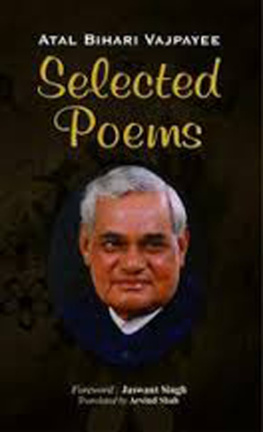

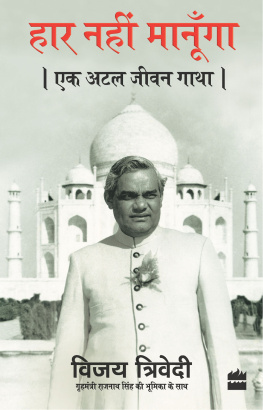
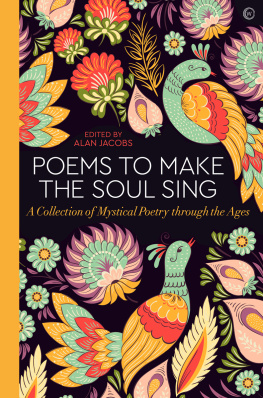
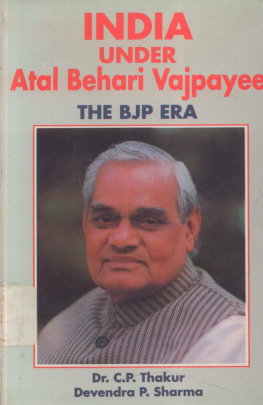
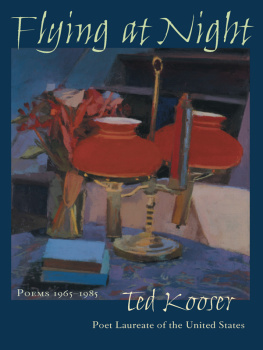

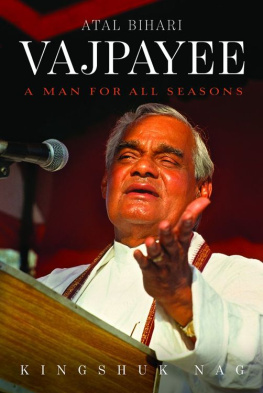


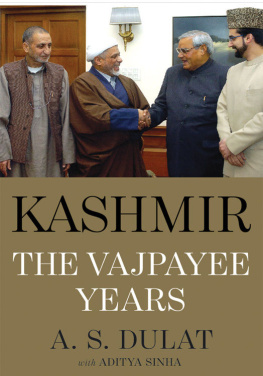
 SELECTED POEMS ATAL BIHARI VAJPAYEE SELECTED POEMS ATAL BIHARI VAJPAYEE Translated by
SELECTED POEMS ATAL BIHARI VAJPAYEE SELECTED POEMS ATAL BIHARI VAJPAYEE Translated by Selected Poems Atal Bihari Vajpayee Arvind Shah (Translations) ISBN : 978-81-212-1194-9 All rights reserved. No part of this book may be reproduced in any manner without written permission Published in 2013 in India by Gyan Publishing House 23, Main Ansari Road, Daryaganj, New Delhi - 110002 Phones : 23282060, 23261060 Fax : (011) 23285914 E-mail: website: gyanbooks.com Laser Type Setting : Rajender Vashist, Delhi
Selected Poems Atal Bihari Vajpayee Arvind Shah (Translations) ISBN : 978-81-212-1194-9 All rights reserved. No part of this book may be reproduced in any manner without written permission Published in 2013 in India by Gyan Publishing House 23, Main Ansari Road, Daryaganj, New Delhi - 110002 Phones : 23282060, 23261060 Fax : (011) 23285914 E-mail: website: gyanbooks.com Laser Type Setting : Rajender Vashist, Delhi